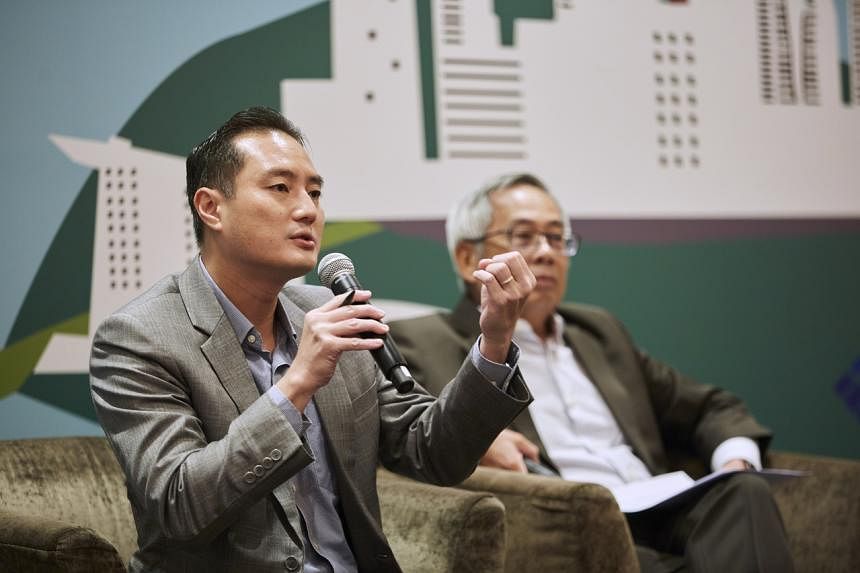SINGAPORE - Low pay, poor work-life balance and a lack of recognition are among reasons for the shortage of engineers, said professionals and business leaders.
But employers are optimistic that local large-scale projects and initiatives by the Government can draw more talent.
The labour crunch in the sector was raised at the Professional Engineers Board (PEB) Symposium on Wednesday that was attended by 500 guests.
During a moderated dialogue, professional engineers and business leaders said factors such as higher remuneration, work-life balance and recognition can attract new talent.
According to Institution of Engineers Singapore, depending on the sector the engineer works in, the starting salary ranges between $3,500 and $5,000.
One Smart Engineering executive director David Ng said: "Some engineers may have to work long hours and even work on weekends when they are rushing for submissions such as design drawings for approval.
"This is not healthy and not sustainable for attracting talents to work in our industry. In our company, we plan our engineers' workload and manage clients' expectations within a reasonable timeframe."
Professional engineers and business leaders at the symposium also mentioned the lack of recognition of engineers' work, such as the public not understanding their roles and contributions in major infrastructure projects.
PEB president Lim Peng Hong, the managing director of PH Consulting, which provides professional engineering consultancy services, said recognition of engineers is important to attract young people to the profession.
The intake of civil engineering students at the National University of Singapore has been falling in the last five years, said Professor Richard Liew, the head of NUS' civil and environmental engineering department. This year's intake was 45 per cent lower than last year's intake of about 100 students, he said.
At the symposium, Mr Tan Kiat How, the Senior Minister of State for National Development and Communications and Information, acknowledged that talent attraction and retention in the engineering sector are "a key area of concern".
He reiterated what the Government and industry are doing to draw more engineers and grow their careers.
To retain talent, the Building and Construction Authority, SkillsFuture Singapore and Workforce Singapore have developed a Skills Framework for the Built Environment to help engineers identify training programmes to develop their career.
Mr Tan also said the upcoming Corenet X platform will tap technology to lighten the load on engineers.
One Smart's Mr Ng said the initiatives will provide engineers with more opportunities to learn more advanced technologies and skills.
Upcoming large-scale projects such as Changi Airport's Terminal 5 and the Paya Lebar new town may also attract young talent to the industry, said PEB's Mr Lim.
These projects can enhance an engineer's portfolio and help him to work better in teams as these projects involve many different fields, he said.
But these initiatives may not be enough to attract young people.
Mr Ryan Tan, 25, an electrical and electronic engineering graduate from Nanyang Technological University, is exploring new fields for better prospects.
He said the long working hours and unattractive pay deter him from entering the industry. He is currently studying for a master's in artificial intelligence at NTU to break into the computer science industry instead.
While he does not rule out joining the engineering industry in future, he said: "I think my current course of study makes me more employable in the emerging tech sectors, which might be a safer career move in the long run."


